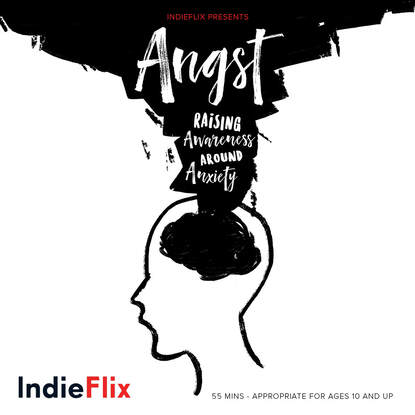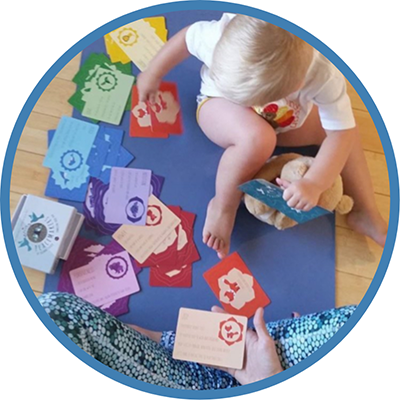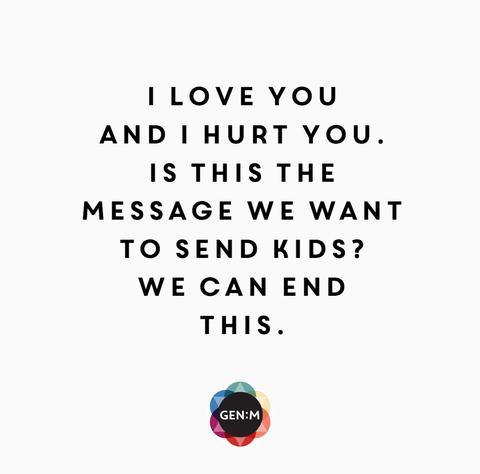Mental Health Resources |
Developmental Resources |
|
***Remember, your first thought should be to refer children, youth and their families to appropriate, professional mental health care providers. These links are offered to aid you in identifying mental health issues in those you serve.
Breathe with Benji is an animated short by British animation director Will Rose. The 1.5-minute sequence follows Benji from the yoga studio to the woods where he breathes in and out, finding calm with animals around him.
Child regression: What it is and how you can support your little one
A child psychology expert explains that while regression can be frustrating, it’s common and usually short lived. Common Teen Issues - Learn some common issues faced by teens.
Mental Health Resources - From Yale Youth Ministry Institute come a variety of topics and helpful tools. FREE!
Sitting Still Like a Frog: Mindfulness Exercises for Kids (and Their Parents): Author Eline Snel provides simple mindfulness practices to help your child deal with anxiety, improve concentration, and handle difficult emotions. The book comes with an audio cd.
Angst is a 56-minute film and virtual reality experience that explores anxiety, its causes, effects and what we can do about it. Angst features candid interviews with kids and young adults who suffer, or have suffered, from anxiety and what they’ve learned about it. The film includes discussions with mental health experts about the causes of anxiety and its sociological effects, as well as help, resources and tools.
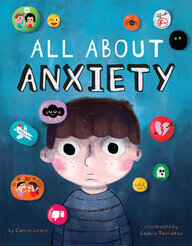
All About Anxiety tackles tough questions kids have about what's going on in their brains when they feel anxious and equips readers with new strategies to manage anxiety so they can thrive in their daily lives.
Abuse - Tips, signs of abuse, resources to help you identify abuse.
ADD/ADHD -ADDitude is a magazine, a website, and a weekly e-newsletter with blogs, webinars, and other information abotu strategies for parenting ADHD and LD children.
Autism - Information on autism, tips on identifying it, resources
Cutting and Self-Harm - Self-harm is a way of expressing and dealing with deep distress and emotional pain
Drug Rehab - Changing lives through addiction care & education.
Erika's Lighthouse - Teenage depression thrives in isolation. It feeds on silence. It lives in the darkness. That’s why we’re dedicated to light, to conversation, and to community.
Families and Divorce - Helpful insights to share with parents.
Self-Mutilation: Information and Guidance for School Personnel
American Psychological Association - The American Psychological Association is the largest scientific and professional organization representing psychology in the United States.
Helping Children with Fear and Loss "In the middle of crisis and tragedy, ministry leaders must deal with our own emotional response while simultaneously offering what author Edwin Friedman calls our "non-anxious presence" into an atmosphere of fear and confusion and grief". Below is a small list of resources to assist you in serving as that non-anxious presence to the families and greater community you serve. Recommendations from the Evangelical Lutheran Education Association:
NAEYC Resources:
The Family Resource Center: How to Break the Cycle of Debt and Mental Health - a blog from The Simple Dollar provides understanding between money and mental health.

Internet Safety - Most kids learn to understand boundaries, like respecting others’ personal space, or not opening the cookie jar without asking. Internet use is no different. It’s helpful for kids to have ground rules as to which websites they can visit, which apps they can use, and what they can share online.
Sunshine Behavioral Health - an educational resource guide that discusses substance abuse and mental health in the transgender community.
|
A Month at a Time: Classroom Ideas and Resources - from the ELEA comes a monthly well thought out topic that includes links to more resources for preschool aged children.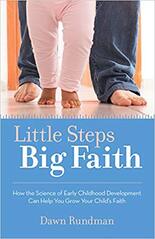
Little Steps, Big Faith - author Dawn Rundman. From brain science to language development and social skills, we've never known more about how children's minds develop in the first five years of life. Yet with all the information available, Christian parents may find themselves confused about how to apply these learnings to daily life with their children. In Little Steps, Big Faith, early childhood expert Dr. Dawn Rundman navigates the research to arrive at surprising insights about how very young children experience God, and how parents can use science to teach faith. Check out a FREE Discussion Guide here.

Challenging Behavior in Children - Why is challenging behavior more of an issue these days? I think much of it results from changes to early childhood education. From the emphasis on academics and accountability, and the attempt to accelerate child development. Following are seven reasons I believe are behind the increase in disruptive behavior...
Developmental Relationships - Search Institute information about the importance of developmental relationships for children. Based on research.
Children aren’t born knowing how to regulate their emotions any more than they are born knowing how to tie their shoes. Regulation is a skill, so let’s teach it! Learn more at Generation Mindful. 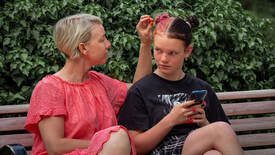
Mom's Voice Holds a Special Place in Kid's Hearts...that Changes in their Teens Science now proves why teens start listening to peers more...
Developmental Assets - 40 research-based, positive qualities that influence young people’s development.
Centers for Disease Control - Developmental milestones, tips for parents and more.
World Health Organization on Adolescent Development - Some basic points about what to expect in adolescents as they navigate ages 11-19.
Medline Plus - Helpful collection of expectations including a breakdown between male and female development. Holy Listening Stones by Rev. Dr. Leanne Hadley Holy Listening Stones are a tool to help children put their feelings, insights and thoughts into words. They also help adults to remember to listen to what children
express. Learn more here. "spanking children is one of the roots of relationship violence and mental health problems..." Read more from Generation Mindful. Trauma:Trauma Informed Ministry: Integrating the principles of trauma-informed care into educational ministries is an excellent sheet by Rebecca Davis and distributed by the Association of Presbyterian Church Educators and the Office of Christian Formation for the PCUSA. It offers background about trauma and gives concrete ideas for how to adjust our ministry practices in light of it.
A Biblical Perspective on Trauma featuring Paul Cho is a very relevant episode of the Leading Ideas Talks podcast. Cho offers ideas for utilizing scripture in processing the trauma folks have experienced in the last year.
Age-Related Reactions to a Traumatic Event is a great handout from the National Child Traumatic Stress Network. It provides information that can equip families, teachers, and faith communities in general understand some of the lingering effects of the last year on our young people. It also gives ideas for how to support them, which the church can do well if we are intentional in our gathering.
What's Up with "That" Kid?, Trauma and Youth, Trauma-Informed Tools for Youth Camping Ministry, and Trauma Informed Priorities for Adult Christian Formation are all articles from trusted contributors to Building Faith. Though some predate the pandemic, they offer nuggets of wisdom that are relevant as we continue in ministry with people who have experienced trauma, both individually and collectively.

How to Talk With Kids About Tragedies - After any disaster or crisis, families struggle with what they should say to children and how to help them cope.
The American Academy of Pediatrics (AAP) encourages parents, teachers, child care providers, and others who work closely with children to filter information about the event and present it in a way that their child can understand, adjust to and handle in a healthy way. 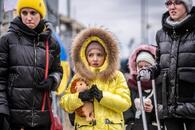
How to Talk to Your Children about Conflict and War - from Unicef
8 tips to support and comfort your children. 
The Lutheran Outdoor Ministry Podcast,
https://www.lomnetwork.org/podcasts/ with Janelle Hooper, ELCA Program Director for Ministry with Children, is informative with tips for talking with kids about traumatic news events. Seseame Street has resources on talking to young children about violence with practical tools for helping kids feel safe.
| ||||
